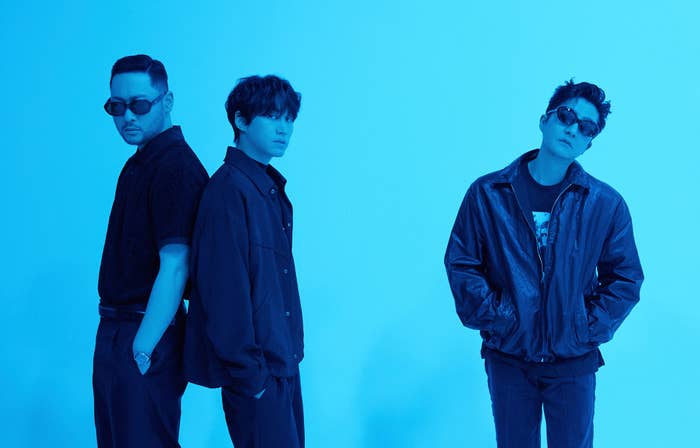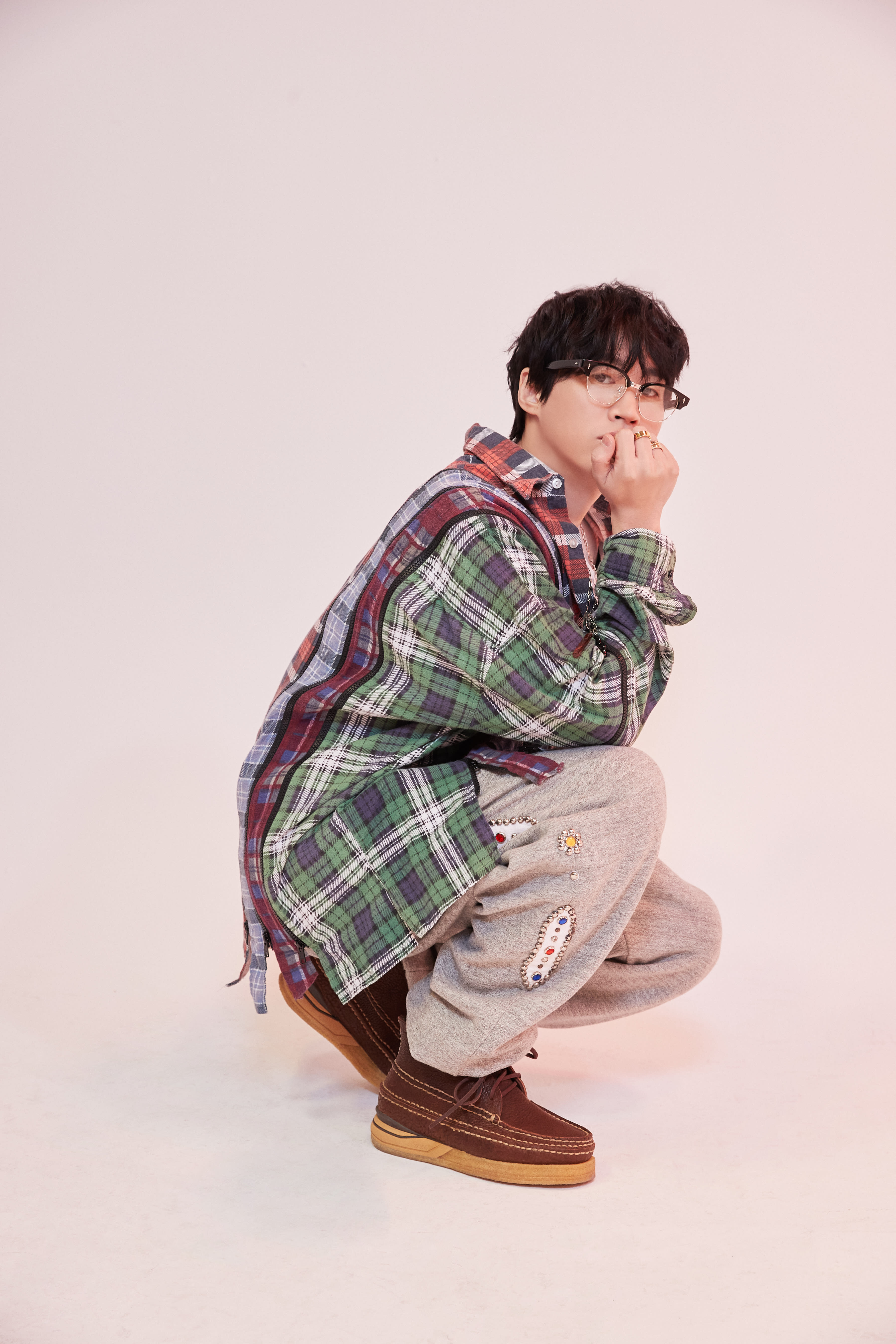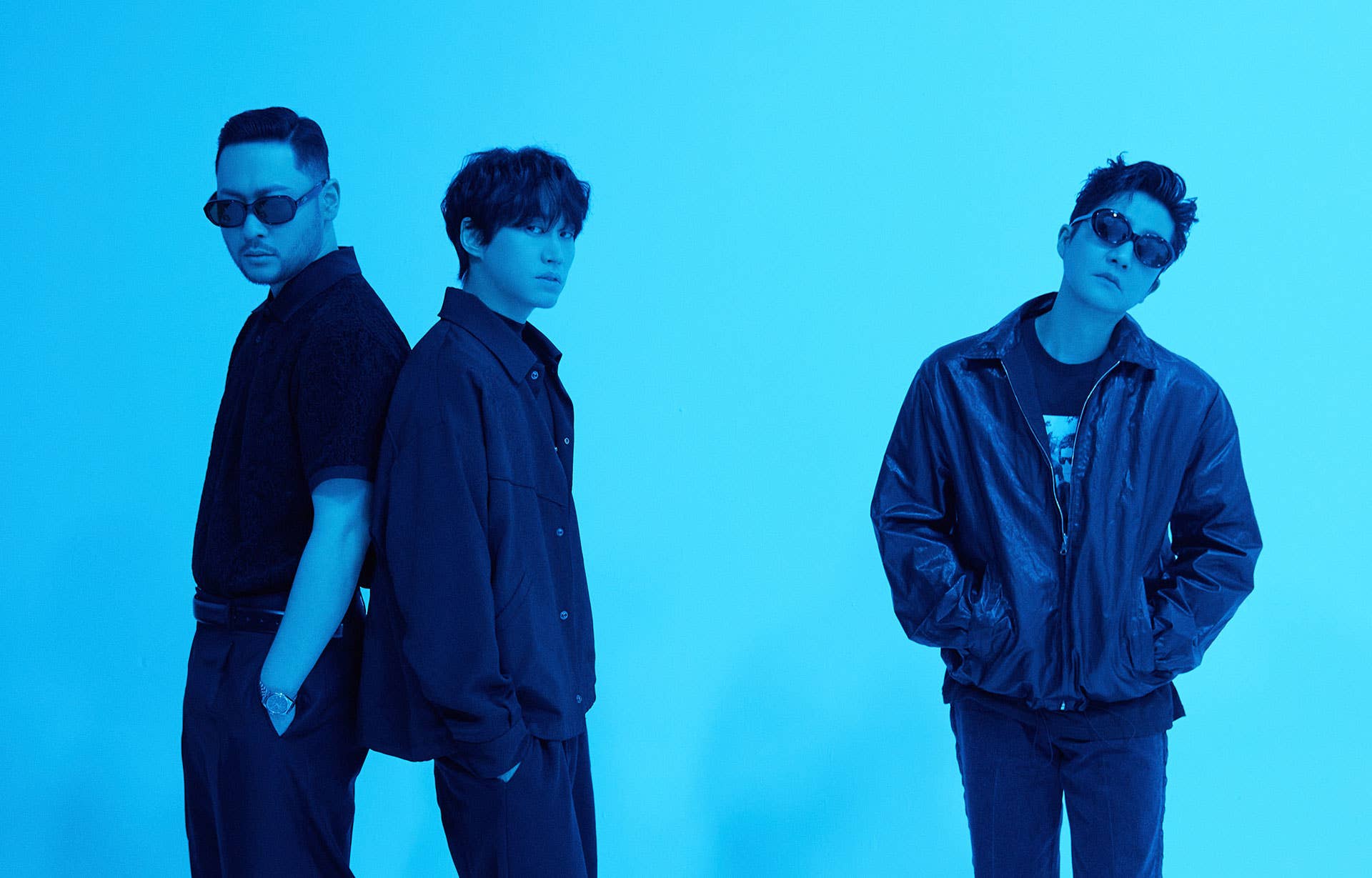
When Epik High took the stage in Toronto in mid-March, frontman Tablo had a few words for the audience. “There are definitely some of you in there, hiding that you want to cry a little bit before you party. Sometimes in order to never cry again, you have to let yourself cry now,” he said. “We will help you throw out that one tear you’ve been holding back.”
Messages like that from Tablo have long comforted the many fans that have followed him for over a decade and more. “Sharing a lifetime with fans, I think, is a luxury that many musicians don’t get to have,” he said over a Zoom call a week later from Raleigh, North Carolina, where Epik High were in the middle of its North American tour. “We appreciate it just as much as they do.”
Before Korean acts like Big Bang and BTS, there was Epik High. Formed in 2001 in Seoul, South Korea, the trio—made up by members Tablo, Mithra Jin and DJ Tukutz—is widely credited for being one of the first acts to infuse hip-hop and rap into mainstream music in the country. They’re also known for tackling themes such as mental health and depression in their music, something seen as rare in Korean society.
Tablo, also known as Daniel Seon-Woong Lee, was born in Seoul, grew up in Vancouver, and was educated at Stanford University. While his career has lasted over 20 years, there was a time when he thought he could lose it all. During the height of his career in 2010, an online smear campaign turned his life upside down when a group of anti-fans questioned the legitimacy of Tablo’s university education. The rumour led to him taking a two year hiatus. It had an impact on his own mental health and exacerbated his father’s deteriorating health until he died in 2012. The only weapon Tablo had against the anti-fans was simply the truth. Eventually, police ended up confirming Tablo did indeed graduate from Stanford, and that he was not lying.
Twelve years later, Tablo delves deep into this period of his life on a new VICE podcast called Authentic The Story of Tablo, which premiered February 24. Epik High’s latest studio album Epik High Is Here 下, Pt. 2 also references these moments. This weekend, the group will perform at Coachella for the second time since 2016, becoming the first Korean act to be invited back multiple times. In an interview with Complex Canada, Tablo opened up about mental health, the rumour that almost ended his life, and the fans that have stayed with him over the years.
(This interview has been edited and condensed for clarity.)

What’s it like to perform for fans who have stuck with you for over a decade?
It’s interesting, because some of our fans have been with us for two decades, some have been with us for one decade. And when we first saw them, they were like, in middle school. Some of them were in elementary school. So as time passes, sometimes we will recognize a fan we’ve already seen. They’ll be with a boyfriend. And then, we’ll do a show again a few years later, and then they’ll be married, they’ll be pregnant, and then one day, they’ll come with a kid. We have a lot of fans like that.
We also have new fans coming in every year with our new songs. We always have middle school kids and high school kids at our shows in Korea as well. When I see them, it’s not like, “Hey, we keep getting new fans!” The first thought that I have is, “I would like to be able to do music as long as possible so that I can see these fans also become dads and moms and also accomplish all the things that they are dreaming about at the moment.”
Did you see yourself having this kind of longevity?
Ah, no. I also didn’t ever imagine that I’d be doing what I’m doing for more than three years when we started. You know, I thought this was just something that I was really passionate about, but wasn’t sure that I wanted to make it a lifetime profession. It was just something perfect for me at the time in my early 20s. You know, I was still a kid when I started, and never did imagine that this would become like a career like this.
“We’ve dedicated 20 years of our lives to Epik High. We’re not going to ever disband or stop doing music or stop being Epik High. This is just who we are now, but I think it’s OK to explore what more we can be.”
You’ve also been with Mithra Jin and DJ Tukutz for over 20 years. Do you remember your first meeting?
Yeah, we met at a pho place in Korea. It was like finding other people that love the same music you do. At the time, it wasn’t just about whether or not we would make it, it was about whether or not hip-hop could ever make it in Korea. Doing hip-hop was like a recipe for failure. It was nearly impossible to get mainstream attention. It was like, very underground, very low key. I mean, we were a very small minority of hip-hop lovers and now it’s the biggest genre in Korea.
Even more rare, is rapping about mental health in Korea. Is that something you see as unusual, or has it changed since?
When we did it on our first album, I don’t think people were ready for that kind of conversation. I think it was a shock at first, and some people just kind of didn’t get it. Some people thought it was very fresh. We just did it because that’s just who I am. I’ve been interested in human emotion and the human condition for pretty much all of my life. Now it’s more commonplace. I think that’s a good thing.
As Asians it’s hard to even talk about your emotions within the home. My personal experience, my parents, they got mad at me if I told them that I was depressed. It’s almost as if it was like a fault or it was wrong to feel a certain way, or ungrateful. We can’t control these things. I think it’s a great thing that celebrities young people can look up to can have open conversations about these topics with them.

Now on the topic of mental health, a new podcast delves into the controversy you were put into over your Stanford education. What was it like to revisit those darkest moments?
Much of what’s on the podcast, I’m sharing for the first time with all of you. Many of the details are surprising to me as well. It was a tough decision to decide at all to participate. It’s not an easy story for me to tell. As a result of the story, I almost lost my life. I lost a family member, and all of that is irreversible. I had spent more than 10 years not wanting to talk about it.
But, I felt like first and foremost, my daughter is 11, about to turn 12. She is living in a world where it’s impossible for her to not be online. I just wanted to make sure that there was a body of work that she could listen to, if God forbid, something even remotely similar to that, or even a tiny fraction of that happens to her. I would hope that she could listen to her dad’s story, and maybe it’ll help guide her through it. Then also to all of my fans who have a huge presence online, I wanted them to be able to prepare because it’s called Authentic: The Story of Tablo. But sadly, it’s not the story of me. It’s literally the story of everyone living in 2022. Even if it seems like something that just couldn’t possibly happen to you, it very well could.
“My memories of Vancouver are very, I mean, it’s a rainy place to begin with. But even if it wasn’t, it would be raining for me.”
By doing this podcast, did you think it could help save someone’s life?
Yes. I thought that my losses would go to waste if it didn’t end up helping at least one person. At the same time, I’m also hoping that some people who may go on to do these evil things, will listen to the podcast and think, “Hey, you know, what is a joke to me, what is just a meme to me, can really damage a person’s life, and possibly even take someone’s life.” Hopefully, they’ll just stop.
Certainly, on your latest album, you do reference a lot of these darker moments in your life. Would you consider this one of your most personal pieces of work?
This album didn’t start off being a personal album. But I think during COVID, we all had some time to look back and reflect about our lives and also plan for the future. It was impossible not to be personal. Like, there’s a song called “I Hated Myself” on the album where I talk about how I was growing up, there were huge expectations on me academically, and I was beat to keep up. I don’t think I’ve ever mentioned that part of my childhood in any of my songs. So when it came out of my mouth as I was trying to write the verse for the song, I think I was surprised. Do I really want to be mentioning these things? But it’s just what is real.

You also end the album saying “Epik High was here” and it kind of feels like an ending. What’s next for Epik High? Is 10 albums a good body of work that you feel like you could try other things?
We’re wondering the same. We don’t know what’s in store for Epik High, but we feel like 10 albums is a good record of who Epik High is, and at the same time, who Epik High was. Moving forward, we’re hoping that we can explore other sides or other facets of like, who Tablo can be, who Mithra can be, who Tukutz can be. But more importantly, who Daniel Seon-Woong Lee is, Jin Choi and Jeong-sik Kim can be. We’ve dedicated 20 years of our lives to Epik High. We’re not going to ever disband or stop doing music or stop being Epik High. This is just who we are now, but I think it’s OK to explore what more we can be.
You spent a lot of your life in Canada. What do you remember about your time growing up in Vancouver?
I was pretty miserable when I was in Vancouver because my parents moved every year and they put me in a new school every single year that I was there. And so, I was always the new kid and as soon as I had some friends that I didn’t want to say goodbye to, I had to. It was just this constant, hello and goodbye to the point where I eventually stopped wanting to make friends because I knew that I would have to lose them very soon. Then eventually, I went to a boarding school, and my entire family was elsewhere. My brother and sister were in the United States in college, my mom and dad went back to Korea. I was completely alone in a dormitory. I think that’s where I sort of became who I am. That’s when I started writing a lot. My memories of Vancouver are very, I mean, it’s a rainy place to begin with. But even if it wasn’t, it would be raining for me.
You’re playing Coachella for the second time. Is it wild to see Korean acts being invited to play at a music festival?
I think it’s kind of crazy that we’re being invited again. And to be invited again, that means that not just Korean acts, but Asian acts have way more demand now, right? I think that’s great.
And I see other names like Peggy Gou, like Tokimonsta on the roster, and I love it. I would love to see more Asian American musicians and Asian musicians at these festivals because, face it, people love it and we’re good at what we do. We’re great at entertaining, and we’re great at putting on a show, and we deserve to be there.
A lot of fans say, your music has helped them get through school or life because of the themes you discuss. Is there anything you would like to say to someone, a fan who might be going through a difficult time now?
Yeah, at our meet and greets, I get that a lot. It makes me very happy to hear that.
I think it’s very important to know what is important and isn’t. Not everything a lot of adults say is important. And by adults, I’m including their parents, teachers, priests, pastors, social leaders. A lot of what they say is important, really, is just important to them. It’s not even about you. A lot of what they say is good for you, is simply just good for them. So learn to ignore some of it, learn to look at things and recognize that some things are just bullshit.



